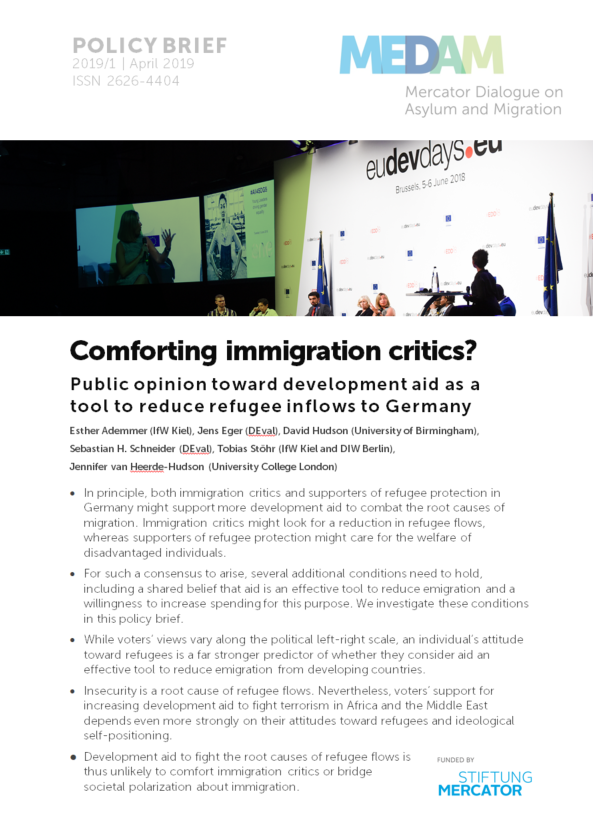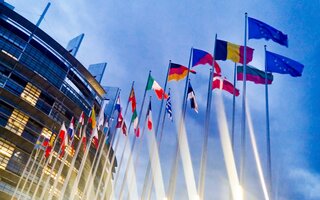Policy Article
Comforting immigration critics? Public opinion toward development aid as a tool to reduce refugee inflows to Germany
MEDAM Policy Brief
Authors
Publication Date
Key Words
Related Topics
Migration
European Union & Euro
Europe
Key Messages
- In principle, both immigration critics and supporters of refugee protection in Germany might support more development aid to combat the root causes of migration. Immigration critics might look for a reduction in refugee flows, whereas supporters of refugee protection might care for the welfare of disadvantaged individuals.
- For such a consensus to arise, several additional conditions need to hold, including a shared belief that aid is an effective tool to reduce emigration and a willingness to increase spending for this purpose. We investigate these conditions in this policy brief.
- While voters’ views vary along the political left-right scale, an individual’s attitude toward refugees is a far stronger predictor of whether they consider aid an effective tool to reduce emigration from developing countries.
- Insecurity is a root cause of refugee flows. Nevertheless, voters’ support for increasing development aid to fight terrorism in Africa and the Middle East depends even more strongly on their attitudes toward refugees and ideological self-positioning.
- Development aid to fight the root causes of refugee flows is thus unlikely to comfort immigration critics or bridge societal polarization about immigration






